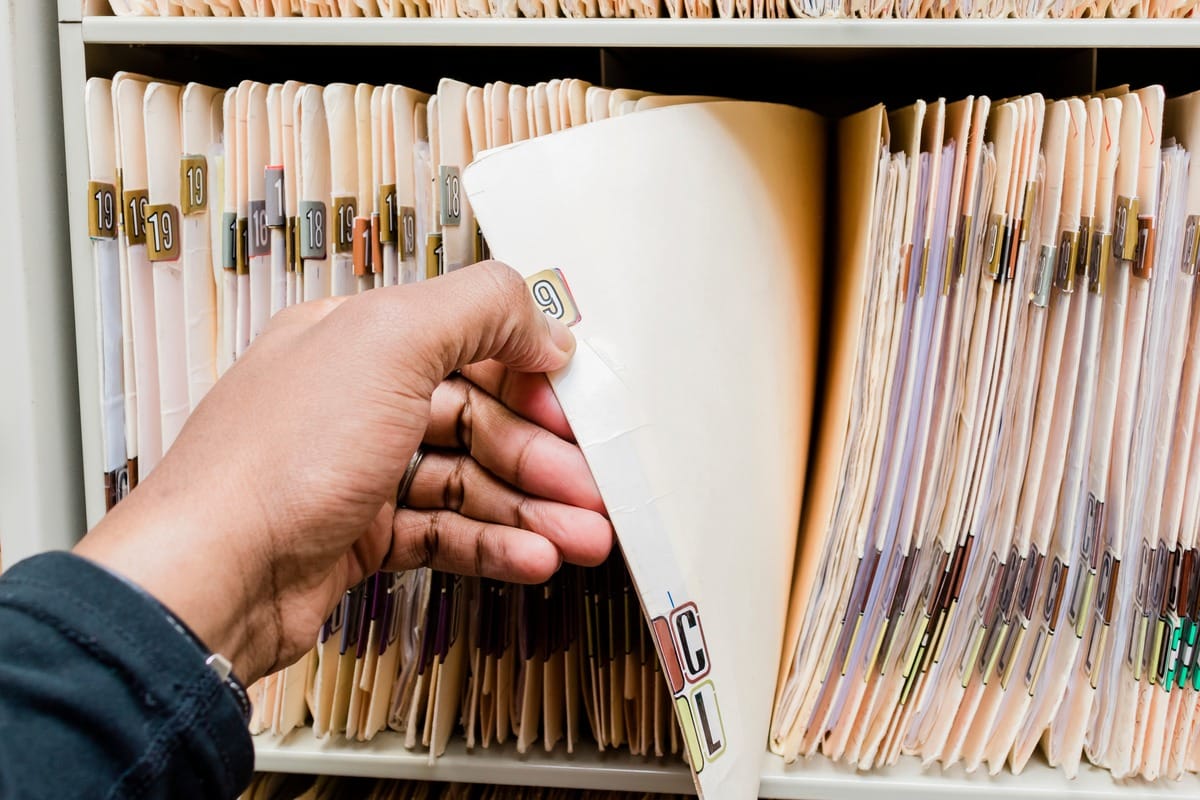The Importance of Medical Records in Personal Injury Cases
In personal injury cases, medical records are one of the most vital forms of evidence that can influence the outcome of a claim. These documents provide a detailed account of the injuries sustained and help establish a timeline and causal link between the incident and the injuries.
When seeking compensation, presenting a well-documented case with the support of accurate medical records can significantly impact the success of your claim. In this article, we will explore the role of medical records in personal injury cases, why they are essential.
What Are Medical Records and Why Are They Important in Personal Injury Cases?

1. Proving the Extent of Injuries
When a personal injury claim is filed, the severity of the injuries and the resulting medical expenses are critical factors in determining the compensation amount. Medical records serve as concrete evidence to demonstrate the extent of these injuries. They detail the diagnosis, treatment plans, medical procedures, and the expected recovery time. For instance, if you sustained a traumatic brain injury from a car accident, the medical records would include neurological assessments, imaging studies (like MRI or CT scans), and any recommended ongoing treatment, such as cognitive therapy.
2. Linking the Injury to the Incident
A crucial aspect of any personal injury claim is establishing that the incident caused the injuries. Medical records provide a timeline and evidence of the injuries shortly after the incident, which helps establish a direct link between the event and the harm suffered. For example, if you were involved in a slip-and-fall accident and sought medical attention immediately, the documentation from that visit would show a direct correlation between the fall and the injuries sustained. This is vital for countering arguments that suggest the injuries were pre-existing or unrelated to the incident.
3. Demonstrating the Need for Ongoing or Future Treatment
Some injuries require long-term care or result in permanent disabilities that necessitate future medical expenses. Medical records help document ongoing symptoms and the need for future medical procedures, physical therapy, or rehabilitation. With this documentation, your compensation may account for future medical needs, potentially leaving you with significant out-of-pocket expenses. By establishing the necessity for continued care, medical records ensure that all medical costs—current and future—are factored into the compensation sought.
4. Supporting Claims for Pain and Suffering
Pain and suffering compensation is awarded to reflect the physical pain and emotional distress experienced due to an injury. Medical records play a role in supporting these claims by providing evidence of the treatments undergone, the intensity of pain reported by the patient, and any mental health impacts, such as anxiety or depression, resulting from the injury. When documented effectively, these records offer a narrative of the pain and suffering endured, helping to justify claims for non-economic damages.
5. Strengthening Credibility and Reducing Disputes
Having detailed, consistent, and complete medical records enhances the credibility of a personal injury claim. It makes it more challenging for insurance companies to dispute the injuries’ validity or impact on the victim’s life. Conversely, incomplete or inconsistent records can undermine a case, giving the opposing side grounds to question the extent or cause of the injuries.
What Types of Medical Records Are Used in Personal Injury Cases?

- Emergency Room Records: Document immediate treatment following the accident, such as initial diagnoses, X-rays, or blood tests. Emergency room records are precious because they establish the injuries right after the incident, creating a solid timeline.
- Physician’s Notes: Include detailed information from doctors regarding the nature and severity of your injuries, treatment plans, and referrals to specialists or other healthcare providers. These notes often provide the most comprehensive view of your treatment journey.
- Hospital Records: Encompass a broad range of information, including admission and discharge summaries, surgical reports, inpatient care, and any treatments received during a hospital stay.
- Physical Therapy Records: If rehabilitation or physical therapy is part of your recovery, these records can document your progress, limitations, and the ongoing nature of your injury.
- Prescription and Medication Records: Provide evidence of the medications prescribed for pain management, anxiety, or other injury-related symptoms, which can support claims for pain and suffering.
- Diagnostic Test Results: These include MRIs, CT scans, and X-rays. These records can objectively demonstrate the severity of an injury, such as a broken bone, spinal injury, or internal organ damage.
How Do Medical Records Impact the Value of a Personal Injury Claim?

1. Medical Expenses
One of the most straightforward uses of medical records is to establish the total cost of medical treatment incurred due to the injury. This includes fees for emergency room visits, surgeries, hospital stays, doctor appointments, prescription medications, and physical therapy. Comprehensive medical records ensure that all incurred expenses are accounted for when seeking compensation.
2. Lost Wages and Diminished Earning Capacity
Injuries often result in time away from work, either temporarily or permanently. Medical records can support a claim for lost wages by providing documentation from a physician who confirms that the injury prevented the victim from working for a certain period. In cases where the injury has resulted in long-term or permanent disability, medical records help establish the extent of the impairment and the impact on the victim’s future earning capacity.
3. Compensation for Pain and Suffering
In addition to economic damages like medical expenses and lost wages, personal injury cases often include non-economic damages for pain and suffering. Medical records documenting the severity of the injury, ongoing pain, and emotional impact can support these claims. The more severe and long-lasting the reported effects of the injury, the higher the potential compensation for pain and suffering.
4. Estimating Future Medical Costs
Some injuries require ongoing treatment, rehabilitation, or multiple surgeries. Medical records documenting future medical needs are crucial in calculating these anticipated costs. This ensures that you are paying for future medical expenses promptly.
5. Proving Permanent Disability or Impairment
In cases where the injury has led to a permanent disability, medical records can substantiate claims for additional compensation. This may involve documenting the level of impairment, necessary accommodations, or long-term medical needs. Expert medical testimony often accompanies these records to establish the life-long impact of the injury fully.
Common Challenges with Medical Records in Personal Injury Cases

1. Incomplete or Inaccurate Medical Records
In some cases, medical records may be incomplete or contain errors. This can happen if specific treatments or symptoms need to be thoroughly documented. Inaccurate records may weaken your case, making it essential to review your medical records carefully and ensure they accurately reflect your injuries and treatment.
2. Delay in Seeking Medical Attention
If you did not seek immediate medical attention following the accident, insurance companies might argue that your injuries were not severe or were not caused by the incident. Prompt medical attention is crucial to connecting the accident and the injuries sustained.
3. Pre-existing Conditions Complicating the Claim
Insurance companies may reduce compensation by attributing your injuries to pre-existing conditions. It is essential to work with an experienced personal injury attorney who can help differentiate the new injuries from any pre-existing conditions, clearly establishing that the current injuries result from the incident.
4. Privacy Concerns Regarding Medical Records
While medical records are necessary to substantiate your claim, protecting your privacy is vital by only disclosing relevant records. An experienced attorney can help ensure that only the essential portions of your medical history are shared with the insurance companies or in court.
How Can Roxell Richards Law Firm Assist You in Personal Injury Cases?
Navigating a personal injury case can be overwhelming, especially when gathering and utilizing medical records effectively. At Roxell Richards Law Firm, we specialize in personal injury law and understand medical records’ critical role in obtaining fair compensation. Our team will assist you in:
- Gathering and Reviewing Your Medical Records: We will obtain all necessary medical documentation and review it thoroughly to ensure it is complete and accurate.
- Building a Strong Case: With years of experience, we know how to present medical evidence in a compelling way that supports your compensation claim.
- Negotiating with Insurance Companies: We handle all communications with insurance companies, using medical records to counter any attempts to dispute your claim.
- Protecting Your Privacy: We will ensure that only the relevant medical information is shared, safeguarding your privacy while providing the necessary evidence.
Call to Action
If you’ve been injured and need help navigating the complexities of a personal injury claim, Contact Roxell Richards Law Firm today to schedule a free consultation. Let us handle the legal aspects of your case while you focus on your recovery. Don’t wait—protect your rights and secure the compensation you deserve!
Roxell Richards Injury Law Firm
